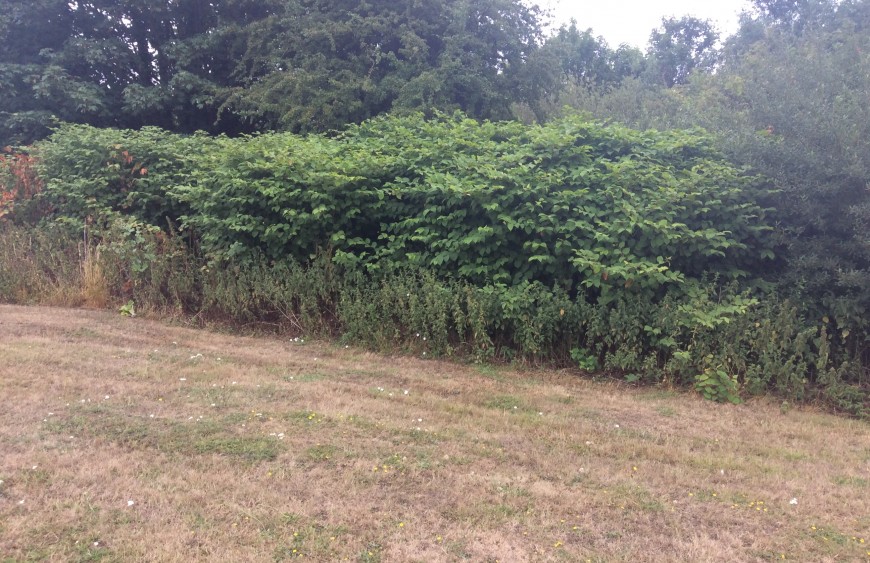
I decided to check out the seven main political parties’ websites for their policies towards biodiversity by searching for “biodiversity” on their website search engine (presuming they had one!).
Here are the results:
The Conservative Party: No immediately obvious search engine but I searched on their “Share the Facts” page and got no results for biodiversity.
The Labour Party: The main search engine was easy to find on their front page. The search retrieves 6 results – the most recent of which is dated 21st November 2014 and attributed to Ed Miliband entitled “Doing right by the planet, our kids and our grandkids….”
Ed Miliband says:
“I believe in a more equal society. I believe Britain is too unequal and we need to change it. And I believe that the environment and tackling climate change is an essential part of that.
Why? Because it is the poorest people on the planet — and indeed, the poorest people at home — who will suffer the worst effects of climate change.
So if we want to build a more equal country, we need to build a greener and more sustainable country: the economy and the environment hand-in-hand.
Here are some of the ways we’ll do that:
- We will create a million new green jobs. With Labour, Britain will be a world leader again in green technology and services.
- We will do more to protect and keep public access to our parks and green spaces. Climate change, biodiversity and the natural environment go together. This is so important in ensuring people have a decent quality of life and a connection to the environment around us.
- We will devolve powers and resources to local communities and cities that want to tackle climate change.
- We will maintain and strengthen Britain’s position in the European Union. If you believe in a country that is serious about climate change, you cannot be serious about leaving the EU. We have just seen a historic agreement between the US and China; Britain is relevant to that, but we are much, much more relevant as a strong player within the European Union.
- We will build a national consensus on climate change, again. The scientific evidence has got stronger, not weaker, in the last five years. But the consensus has frayed. We won’t take that consensus for granted, either on the science or on the need to tackle it. Not acting is much, much more costly than acting, and we need to keep reinforcing that argument.
Next year the world will meet in Paris for the 21st Global Summit on Climate Change. If I am Prime Minister I will make sure that the UK is once again leading the global fight to tackle climate change.
I don’t want this summit to pass by without comment. I want this summit to be a big moment when we say ‘this matters, this matters to the future of our kids, to the future of our grandkids – and the world must act”.
Liberal Democrats: This party also has an easy-to-find search engine on their front page. The biodiversity search came up with 14 results including a 1st September 2014 Manifesto pledge for five new laws for a greener Britain:
- “A Nature Bill: key measures include legal targets for biodiversity, clean air, clean water and access to green space, extending the Right to Roam and establishing new marine and coastal reserves.
- A Heating and Energy Efficiency Bill: key measures include building on the Green Deal with a national programme to raise the energy efficiency standards for all Britain’s households. We will legislate to boost renewable and district heating programmes and heat-saving standards.
- A Zero Waste Britain Bill: key measures include establishing a “Stern Report” on resource use, with binding targets and a clear action plan to reduce waste and end biodegradable landfills.
- A Zero Carbon Britain Bill: key measures include introducing a decarbonisation target for electricity generation, expanding the powers of the Green Investment Bank and banning electricity generated from unabated coal.
- A Green Transport Bill: key measures include establishing a full network of charging points for electric cars, only allowing low-emission vehicles on the roads from 2040 and reforming planning law to ensure new developments are designed around walking, cycling and public transport.”
The UK Independence Party (UKIP): There was no apparent search engine on their site and I could find no biodiversity policies listed on their Policies for People page.
The Green Party: The party’s site has an easily located search engine on its front page. The biodiversity search brings up 159 results including the party’s Countryside Policy. Specific policies on Wildlife, Habitat, and Species Protection are cited as:
- “Maintaining a healthy environment necessitates the maintenance of species diversity and the vigorous protection of wild habitats. The Green Party’s policies to increase self-reliance and address our consumer-based lifestyle will help to ensure that we do not make environmentally damaging demands on the countryside or the rest of the world. We will work to extend globally our policies to support sustainable rural communities and will support at every level of the international community effective measures to protect the environment.
- The Wildlife and Countryside Act 1981 and related legislation will be consolidated and strengthened to remove loopholes and weaknesses that allow further destruction of wildlife and habitats. The Green Party will ensure that wildlife-rich sites are adequately protected and extend a basic level of habitat protection to the whole countryside. We will ensure that there are sufficient resources to enforce the legislation.
- The Green Party will make it a general offence to cause cruelty to wild animals or suffering where it can be practicably avoided. Those committing such acts will be prosecuted in the same way as for domestic animals. Humane methods of killing, for instance in pest control, will be required. The Green Party will bring in an outright ban on snaring.
- We will ensure that legislation is adequate to prevent wildlife crime and that there are sufficient resources to enforce the legislation and prosecute those who carry out wildlife crime.
- The Green Party will work with appropriate partners to strengthen international wildlife law and to ensure that it is implemented.
- We will work at the European level to strengthen the protection of habitats through the Habitats Directive and will ensure that Pillar 2 of the Common Agricultural Policy continues to provide environmental and habitat protection.
- We support the establishment of the Nature 2000 network of special areas of conservation established by the European Habitat Directive and its associated legislation. Although the UK has a good record of reporting on such sites, biodiversity is still threatened at many types of sites in particular grassland, wetland and coastal sites. And more positive action on biodiversity is needed.
- The introduction of non-native wild plants and non-native genotypes of British species may have a negative impact on wild plant populations and communities in the UK. The Green Party aims to ensure good-quality habitat restoration and avoid the introduction of harmful or invasive non-native plants. The relevant policy is in place under the Convention for Biological Diversity, the Convention on International Trade in Endangered Species of Wild Fauna and Flora and the Habitats Directive but there remain loopholes. We will review legislation and implement new laws where currently there are only codes of practice. We will collaborate at a European level to achieve this, including both live plants and seeds in the review.
- The collection of wild plant species may have impacts on wild populations. The Green Party will support measures to introduce a European Wild Plants directive which would give clear labelling on all living wild plant material traded within Europe, license all traders dealing with wild-collected plant material and tighten up import and export controls on wild plants.
- The Ramsar Convention is a global network of wetlands for sustaining people and the environment; the UK has 168 designated sites. The Green Party will ensure that Ramsar Convention sites remain highly protected and that other designated areas retain a high degree of protection from development.
- The Green Party recognises the continuing pressures on the countryside. Rather than economic growth being the key driver of planning policies, we believe that ecologically sound strategic planning is needed, protecting and enhancing the environment and integrating the needs of urban and rural communities, as well as future generations. The Green Party opposes the relocation of environmentally damaging operations overseas”.
Plaid Cymru|Party of Wales: The party has an easy-to-find search engine on the front page which pulls up 5 results for the biodiversity search. Their natural environment policies are on their Food and Agriculture page. The party states:
- “Plaid Cymru values Wales’ natural environment. We understand the crucial role of healthy, functioning ecosystems and are committed to maintaining and restoring our biodiversity.
- We are against the growth of Genetically Modified Organisms (GMOs) in Wales and support a GMO-free British Isles and Europe on the precautionary principle.
- We have concerns about the impact of cross-pollination if the UK Government pushes ahead with plans to introduce GMO crops in England.
- We will continue to work across the British Isles and Europe to prevent the spread of invasive alien species, both flora and fauna, including creating early threat warnings”.
Scottish National Party: The party’s homepage has an easy-to-find search engine which pulls up 3 pages of biodiversity-related searches including their progress page on The Environment which states:
“Scotland has a spectacular natural environment and rich biodiversity, and our country is giving a leading example of tackling climate change.
The world-leading climate change legislation passed by the Scottish Parliament in 2009 demonstrates Scotalnd’s progressive approach to the protection of the environment and makes Scotland a respected and valued player on the international stage.
Our £10 million Saltire prize for marine energy innovation has made Scotland a focal point for research and deployment of marine renewable technology.
We’ve reduced the carbon footprint of our rail network by delivering 218 miles of new electrified track across the country.
We’ve introduced a carrier bag charge to encourage Scots to really think about how many bags they’re using and whether they could reuse more of them to reduce their impact on the environment. The charge will also benefit Scotland through retailers signing up to the Carrier Bag Commitment, which will see the proceeds of the charge being donated to good causes.
And, there will be no new nuclear power stations in Scotland with the SNP”.
If biodiversity is a voting issue for you I hope you find the links useful in getting you to the published information. Good luck with your choice.



